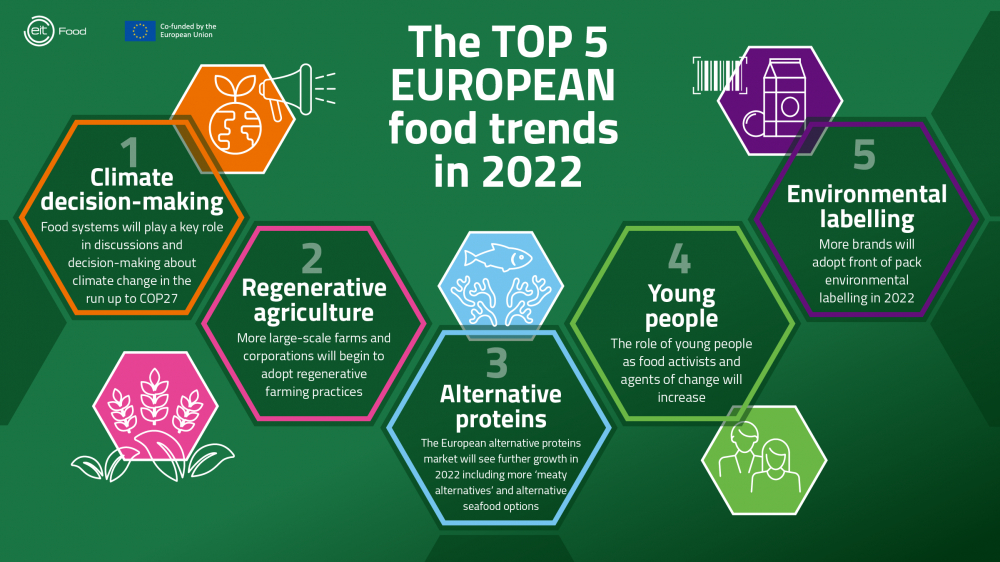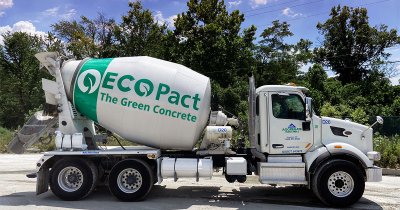The food and drinks industry is employing over 4.5 million people and accounting for 290.000 small to medium enterprises. Take a look at EIT Food top 5 European food trends for 2022.
Climate decision making
With the importance of limiting global warming to 1.5°C becoming more evident, and as the countdown for the 2030 Sustainable Development Goals draws closer, the food system needs to be front and centre in dialogues leading up to, and at, COP27 in Egypt. Dr. Andy Zynga, EIT Food CEO, stated that, “as we look to make food a high priority in global sustainability and health dialogues over the next year and beyond, we need to involve all stakeholders in conversations.” The role of farming in climate mitigation and adaptation, for example, cannot be considered in isolation - it must be tackled as part of a wider systems approach, with the food system as a whole included in dialogues surrounding climate change.
Collaboration between organisations in the food system is likely to increase in 2022 and food brands will be under greater pressure to further develop sustainability roadmaps. Policymakers will also be expected to start to introduce further legislation that encourages sustainable and ethical practices within the food system.
Regenerative agriculture
Labelled as the biggest food system trend for 2022 by the EIT Food community on our FoodHIVE platform, regenerative agriculture, which aims to improve soil health and increase biodiversity on farms, is likely to see greater uptake by large-scale farms and corporations in 2022.
Governments and authorities are also likely to support more farms transitioning to regenerative agriculture in 2022. In the UK, for example, the government introduced new subsidy plans as part of its Agricultural Transition Plan 2021-2024 where farmers will be offered up to £70 per hectare to adopt regenerative techniques, including mixed farming systems where crops are cultivated alongside livestock to help boost soil health.
Alternative proteins
High profile investment into alternative protein innovation is also likely to grow in 2022, with the recent example of actor and environmentalist Leonardo DiCaprio investing in two EIT Food RisingFoodStars focusing on cultivated meat, Mosa Meat and Aleph Farms. In fact, Mosa Meat representatives have said the company aims to have cultured hamburgers on the European market in the first half of 2022.
The first half of 2021 saw record investments of $116 million into alternative seafood products, surpassing 2020’s total investments.
Food activists and young people
2022 will likely see more young people starting agrifood businesses, an increase in environmentally conscious consumption in the Gen Z demographic, and the emergence of new youth movements within the food, climate and health space.
Green labels
With consumers often having concerns about confusing and misleading claims on food labels and up to 59% feeling that product labels do not provide enough information, it is clear there is an opportunity for improvement in 2022 and beyond.
 Vlad Andriescu
Vlad Andriescu












Any thoughts?